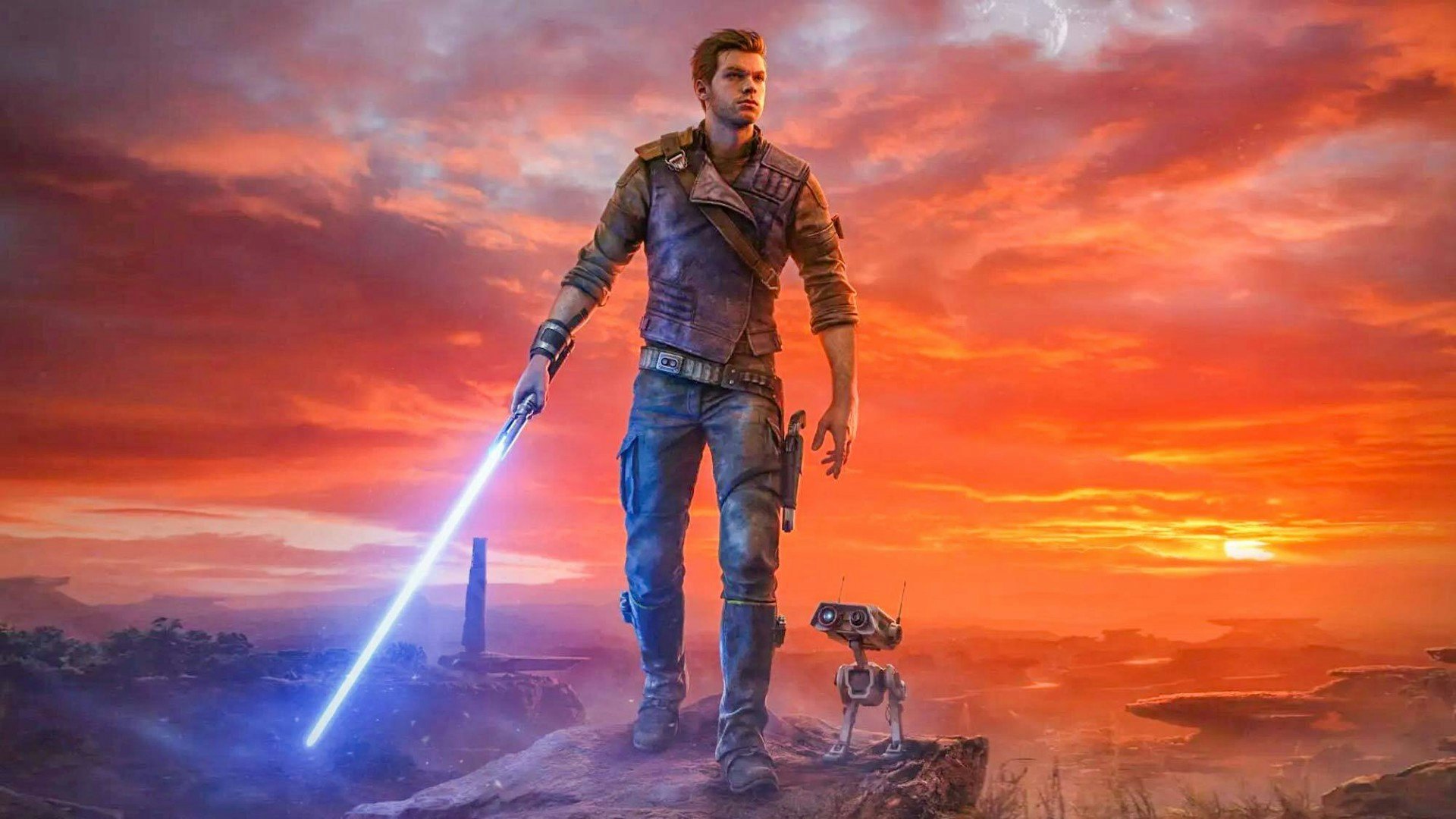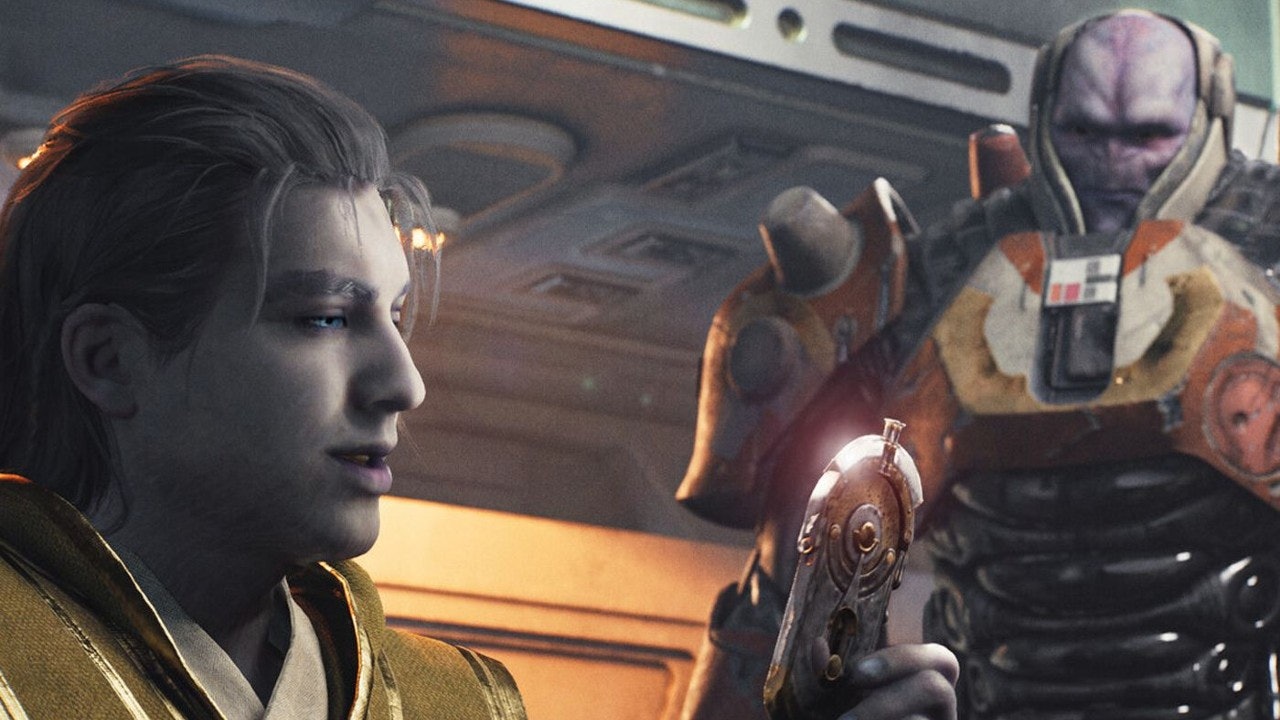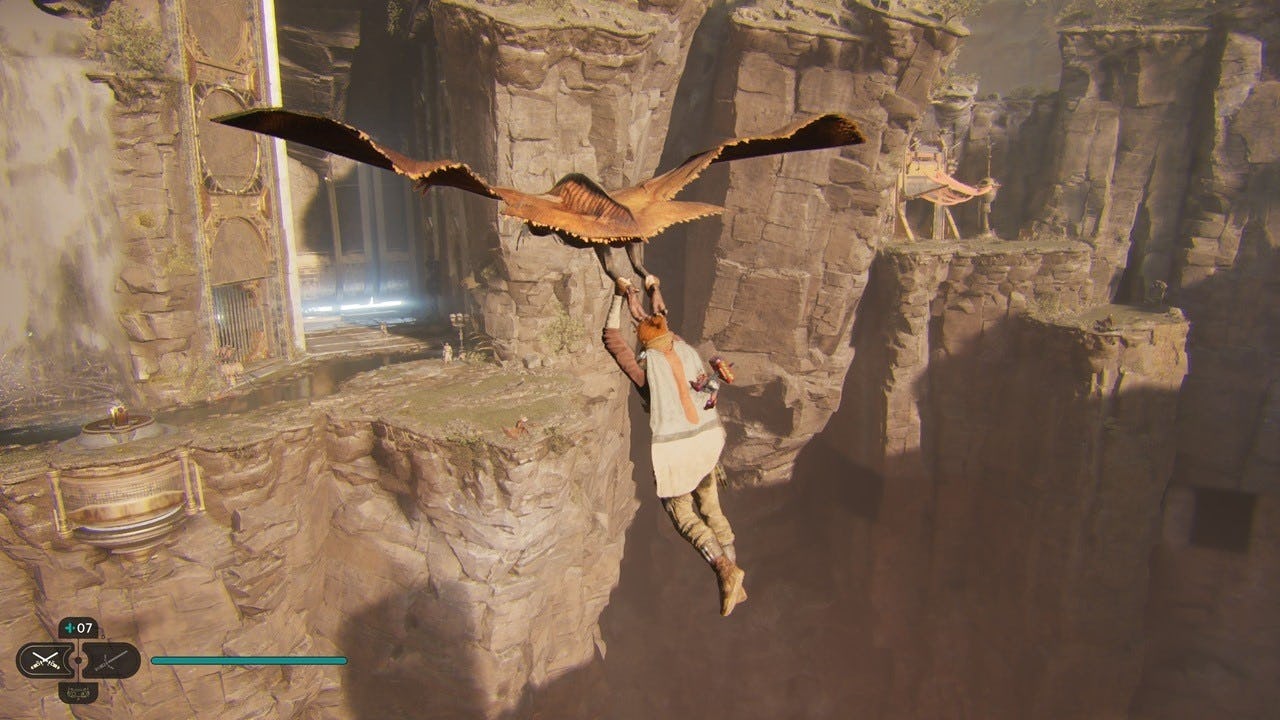
Turning a movie franchise into a video game doesn’t always end in success, but when it comes to Star Wars, the odds are actually pretty good. From Knights of the Old Republic to Rogue Squadron to a half-dozen LEGO titles, the Star Wars games can be shockingly good. And earlier this year, another game joined that pantheon.
Star Wars Jedi: Survivor is the stunning second chapter in the story of Cal Kestis. It’s an absolute must-play for any Star Wars fan, but also simply one of the best action-adventure titles seen in years. With a massive sale happening at retailers like GameStop for Cyber Monday, this is the perfect chance to jump into Jedi Survivor. Here’s why.

While Jedi Survivor is a sequel to 2019’s Jedi: Fallen Order, the game does a good job of getting new players up to speed, meaning you can simply jump in with the sequel. Survivor takes place in 9 BBY (Before the Battle of Yavin) in the Star Wars timeline, placing it before the original trilogy and at nearly the exact same time as the Obi-Wan Kenobi TV show.
Cal Kestis is one of the few Jedi that survived Order 66. After the events of Fallen Order, he continues to execute guerilla strikes on the Empire while searching for a permanent place to hide. When a mission goes terribly wrong, Cal is forced to crashland on the backwater planet Koboh, where he searches for an old friend named Greez to help repair his ship. Things quickly spiral out of control as Cal discovers a massive secret from the High Republic era and a distant planet that could serve as a true refuge from the tyranny of The Empire.
Survivor tells one of the most compelling stories seen in decades of Star Wars, looping in themes of moral ambiguity and trauma, alongside all the typical bombast you’d expect. It’s a surprisingly introspective game that feels quintessentially Star Wars, but importantly raises questions about the nature of the Jedi Order, and whether the survivors of said order are bound to carry on that legacy, or forge something new.

Outside of narrative, the two areas that Survivor really excels in are combat and exploration, which work in tandem to make each other better. Survivor’s story is deliberately paced to support the game’s exploration, letting you take your time to poke around not just Koboh, but a handful of other planets including the globe-spanning metropolis of Coruscant and the dusty ruins of Jedha. Fallen Order integrates Metroidvania elements into its exploration, but Survivor takes things a step further to really carve out an identity of its own.
Exploration serves a tangible purpose in Survivor. Not only can you uncover new bits of story, but the game packs the world with new abilities, weapons, and upgrades for Cal. What’s important, however, is that Respawn Studios makes sure to never force side content on players. There are vast worlds to explore, but everything is designed in a way that encourages freedom. You can bump up Cal’s skills and learn more if you explore, but the main story strings enough upgrades along the critical path that you never feel like those side-quests are mandatory.
At the center of all your exploration is the cantina on Koboh, which serves as your home base. While you’re out exploring you can find NPCs to recruit to the cantina, which can provide upgrades and, more often than not, new bits of lore and story. There’s a real sense of progression to everything in Survivor, as you get to see both the world and characters change as events progress. The same can be said for Cal himself, who becomes more attuned to The Force as the narrative progresses.

Just like in Fallen Order, Cal has access to multiple Lightsaber stances, including dual-wield and double-bladed. There are two brand new stances, however, that drastically change your combat options. The first is Lightsaber and pistol, which functions like a kind of Samurai gunslinger class. This gives you some fantastic ranged options for combat that can decimate groups of enemies. The other stance is Crossguard, inspired by Kylo Ren’s Lightsaber. This stance focuses on defensive options and slow but hugely damaging attacks. Both of these additions add dynamic options to Survivor’s Souls-like combat, and the five different stances, in general, encourage you to experiment with combat options and find whatever gels the most.
Survivor does a fantastic job of tying everything to its main narrative through both combat and exploration. Cals’ growing skills make sense as he becomes more in tune with The Force, and there are new abilities sprinkled throughout the experience to keep things fresh and exciting, right up until the end. Exploration is the exact same, heightening your understanding of the game’s universe and story while providing tangible gameplay rewards that let you customize Cal’s combat skills and aesthetic. At every turn, Survivor is a sequel that thoughtfully updates everything its predecessor did and scraps what didn’t work.
Perhaps more importantly, however, Jedi Survivor gets what makes Star Wars tick: big character-focused stories that give equal time to explosive action and quiet emotion. It’s a stark reminder of why Star Wars has flourished in the realm of video games.







